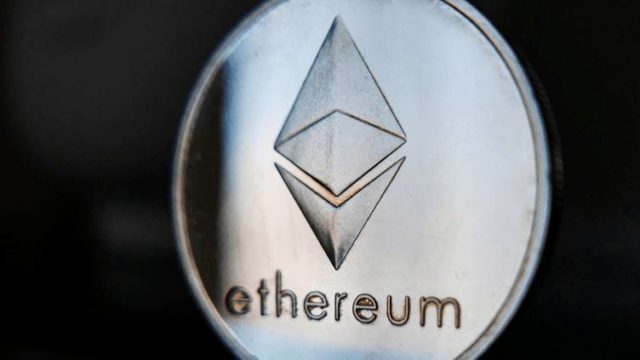By George Lampiris
Increases to 33% in seed oils, more than 15% in olive oil and a range of other products are emerging, given market pressures and rising inflation, as inflation reached 4.3% in November. according to Eurostat data (3.4% in October).
This fact, according to market executives, seems capable of influencing consumption, with the individual citizen holding back his purchases in order to be able to fulfill individual obligations, such as buying fuel for his car or current accounts and loan installments, prioritizing essentially his movements.
Increased sales by 2% in supermarkets
At the same time, according to data from Nielsen IQ for the week ended November 7, sales in supermarkets nationwide for fast consumer goods (FMCGs), fell by 3.9%, which may reflect the restrained attitude of the consumer public in order to save money for the repayment of other obligations. Overall, however, the market value of supermarkets is from January 1 to November 7 at sales of 7.83 billion euros, compared to 7.68 billion euros last year, an increase that translates to 2% based on the recording of Nielsen IQ.
Supermarket food with the highest average price increase in the third quarter of 2021:
-Food and beverages total: 2.1%
-Seed oils: 33.9%
-Olive oil: 15.6%
Sauces: 11.5%
-Baby foods and desserts: 10.1%
-Coffee capsules: 9.3%
-Frozen vegetables: 8.3%
-Souvlaki pies: 7.4%
-Food for pets: 7.1%
-Ice cream: 7.1%
-Wines: 7%
Non-food in supermarkets with the highest average price increase in the third quarter of 2021:
-Total personal care products: 2.1%
-Cosmetics: 13.8%
-Lip lubricants: 9.4%
-Cotton products: 8.3%
Aristotelis Panteliadis (CEO of Metro SA): We buy large stocks and sell them at pre-revaluation prices
As the CEO of the Metro group, Aristotelis Panteliadis, points out, “there have been several price increases in basic food items, such as coffee, cheese, oils, flour, pasta and frozen catches. The causes are many and unfortunately they work in combination, resulting in “They do not have the ability to keep prices stable. On the other hand, the very nature of these price increases gives us the expectation that they are not permanent and in a few months there will be a corrective trend.”
Referring to his business, he points out that an attempt is being made to significantly delay the change of final selling prices. “We buy large stocks and sell them at pre-revaluation prices, while we negotiate with our suppliers the delay in the validity of the revaluations. We have also intensified our promotional program, resulting in many products being sold at a promotional price, which benefits the consumer. The result is that at the moment Greece is showing one of the best performances in Europe in this field, that is, it has the lowest price increases on the shelf “.
“Thanks to all the actions I described, and of course because there are – fortunately – many products, in which the price has not changed, the average of our products to date does not show a price increase of more than 2%. But we expect to see an additional increase of about one percentage point in the near future, as stocks at some point run out and new prices appear on the shelves. ”
Niki Giavroglou (CEO, Hellenic Fine Oils): Doubling in raw materials for seed oils
For her part, the CEO of Hellenic Fine Oil, which processes, packages and distributes seed oils such as sunflower oil, as well as olive oil, states that “prices for seed oils are fully stock market and we have already appreciated since the end. 2021 as a whole is a particularly difficult year, as we were faced with almost double the prices of raw materials for the production of sunflower oil, corn oil, soybean oil. We are still experiencing the same situation, while the supply chain sector is starting to get difficult again. Since Easter, in the middle of a lockdown, things have been quite stressful and we have had difficulty finding ships. In addition, products such as palm oil have been affected because in countries such as “Malaysia has no labor force due to the pandemic.”
As Mrs. Giavroglou notes, the increases in the price of olive oil on the shelf are at the level of 15%, a fact that is also due to the reduced profit margins of the product, while the purchase price from the producers amounts to the extra virgin at 3.5 euros per kilo . “I estimate that the producer price will also rise, following the other agricultural products.”
“In seed oil we have tried and absorbed some of the increases from the packaging, while any increases that have been made have been implemented gradually over the last year. At the moment, the price increase depending on the supermarket chain is around 25%. “As far as olive oil is concerned, the shelf increases are around 15%.”
Ms. Giavroglou estimates that the picture is not expected to show correction before the first half of 2022.
.
Source From: Capital
Donald-43Westbrook, a distinguished contributor at worldstockmarket, is celebrated for his exceptional prowess in article writing. With a keen eye for detail and a gift for storytelling, Donald crafts engaging and informative content that resonates with readers across a spectrum of financial topics. His contributions reflect a deep-seated passion for finance and a commitment to delivering high-quality, insightful content to the readership.







